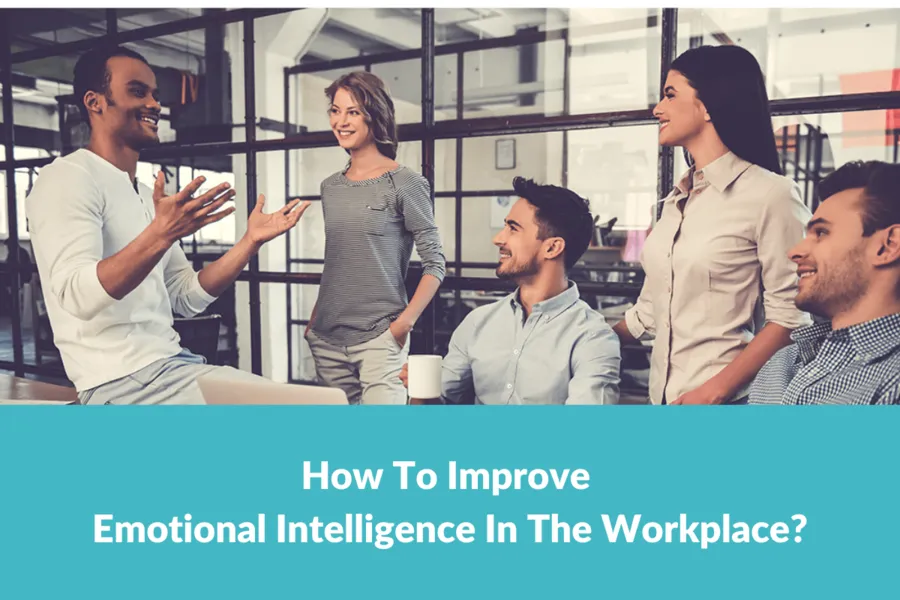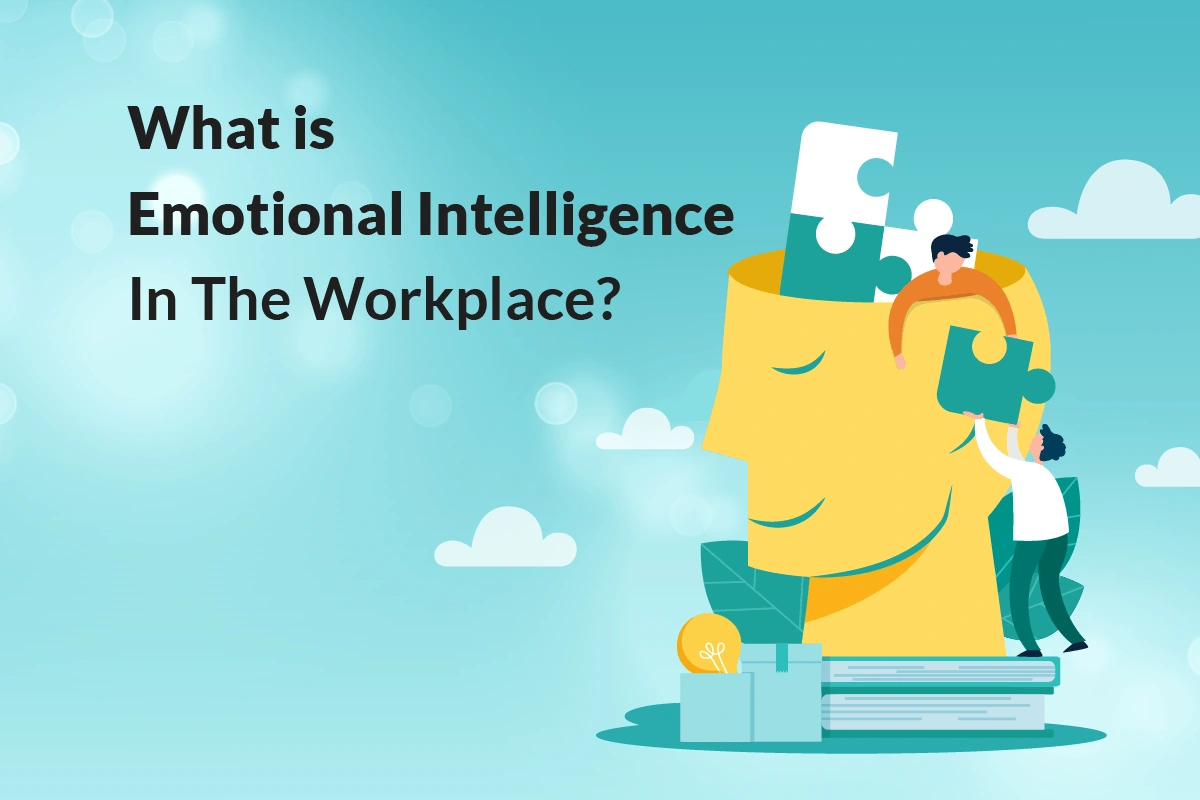You’ve probably heard a lot about Emotional Intelligence (EI), or Emotional Quotient (EQ), which are dynamic indicators showing your ability to control your emotions. Emotional intelligence is the capacity to recognize and manage one’s own emotions as well as comprehend the emotions of others. A high EI allows you to empathize with others, communicate effectively, and be both self and socially aware.

But not just for the generality of life, the emotional intelligence we explore in this article is going to be more specific to the workplace. Not only to assist you in improving your EI, but we here at Boulo Solutions will also demonstrate the benefits it can bring to the workplace, and thus help you gain better knowledge and prepare you for job opportunities.
Tune in to learn more!
What is emotional intelligence in the workplace?
Emotional intelligence (EI) is the ability to understand, manage, and express one’s emotions. It is an important skill that significantly impacts the quality of work and life for each of us.
Your engagement and the navigation of interactions with others are both impacted by emotional intelligence. It’s the ability to understand those around you and then adjust your emotions and behavior accordingly.
In a workplace setting, employees that use their EI create advantages in their career growth as well as benefits for the business. A workforce composed of emotionally aware employees promotes team interactions and contributes to the creation of a pleasant work culture.
Meanwhile, employees that are emotionally inept struggle to regulate their emotions. As a result, individuals often behave impulsively, believing that the repercussions of their actions will not affect themselves or others around them.
Developing EI may help people better understand themselves by providing them with the tools they need to direct their future cognitive processes and behaviors.
Here are a few instances of emotional intelligence in the workplace:
- Constructive feedback rather than personal criticism and challenging habits rather than persons
- Providing assistance to coworkers by detecting their emotions and striving to decrease stress.
- Under pressure, being cool and productive.
- Assisting in the resolution of team member disagreements.
- Creating an environment in which employees may freely express themselves.
So, now you know what EI is, what about how to improve it?
Emotional intelligence skills needed
According to psychologist Daniel Goleman, emotional intelligence includes elements of self-awareness, self-regulation, motivation, empathy, and people skills.

So, to improve emotional intelligence in the workplace, you need to improve all those skills.
Self-awareness
The first thing you need to know is your own feelings. You must be aware of who you are and how you feel. You will be better at managing your emotions if you find out where they come from and look at them.
When you are aware of your own emotions, you can then realize your own strengths and weaknesses. It then helps you get better at handling tasks.
Self-regulation
A person with a high EQ can suppress real emotions when necessary. Instead of letting their emotions rule them, they can control them, manage their anger, or let themselves adapt and change.
Self-regulation enables a person to regulate emotions and maintain balance in any situation.
Motivation
Emotional intelligence affects how individuals get along with others and how they work or succeed. People with a high EQ often motivate themselves to become a better version of themselves. So, they always feel hopeful and strong, even when things are hard, and they are driven by an inner ambition.
=> Related article: The effective way to create motivation for employees
Empathy
Empathy is the most crucial skill for understanding how other people feel. When you have empathy, you have compassion and understanding for everyone around you. From there, you can adjust your emotions to have appropriate behaviors.
People Skills
This skill will help us deal effectively with our own emotions and those of others. It helps you live and work more effectively, build good relationships, and trust each other. Instead of competing for power and backstabbing, we will seek respect and goodness from others.
Benefits of emotional intelligence in the workplace
Emotional intelligence plays an important role in the workplace because it significantly influences how employees and managers treat each other. If you use your EI well, you’ll be able to handle workplace stress better.

Here are some of the emotional intelligence benefits in the workplace:
- Create positive relationships and deepen employee-to-employee and employee-to-manager connections
- Always work towards the interests and goals of the organization
- Help employees stay motivated, understand their own feelings and colleagues
- Healthy communication reduces stress and creates the perfect communal atmosphere
- The staff has a positive view every time they receive a new task
- Handle all conflicts and stress better
- People are empathetic and make decisions that benefit everyone involved
- High EI employees can be perfect leaders and managers
In addition, EI can spread and inspire others. Hiring employees with high EI work will help employees develop more emotional management skills.
Why is emotional intelligence necessary in the workplace?
Emotional intelligence impacts many aspects of the workplace, such as performance, job satisfaction, and employee relationships with each other or managers.

From that, we see that it is considered one of the important, indispensable factors.
Increase work efficiency
Research by the Institute for Health and Human Performance shows that employee performance increases with EI training. Executives with high EI have more opportunities to increase profits.
Another study on essential skills in the workplace found that emotional intelligence accounts for 58% of the impact on performance. The top performers all have high EI scores.
EI can strongly impact work performance thanks to its ability to balance emotions and make timely and accurate decisions. It also helps employees maintain productive relationships and handle stress better.
Level of job satisfaction
Many factors determine whether employees are satisfied with their jobs, but EI can increase the likelihood of satisfaction. It creates positive emotions that make employees happy and confident with what they are.
On the other hand, negative emotions or stress can be alleviated by EI, resulting in a healthier work environment.
Improve workplace relationships
As mentioned above, EI provides emotional understanding with people helping them understand each other better. Since then, relationships have improved, and stressful situations have been handled more effectively.
Conclusion
Emotional intelligence helps make the work environment healthier and allows business owners to gain more profits. High EI employees will create a safe and effective working environment. Make it your goal to improve your own EI and provide tips to those around you to help them improve theirs.
Visit our blog for more tips on all things that can help you have a better chance at interviews!
Reference
- Dr. Bhavana Arora. (2017). Importance Of Emotional Intelligence In The Workplace. Dr. Bhavana Arora. Retrieved from https://www.ijeas.org/download_data/IJEAS0404010.pdf
- Dr. Desti Kannaiah, Dr. R. Shanthi . (2015). A Study on Emotional Intelligence At Work Place. Iiste. Retrieved from https://researchonline.jcu.edu.au/40340/1/40340%20Kannaiah%20and%20Shanthi%202015.pdf
- Kristine Nelson Fuge. (2014). Emotional Intelligence In the Workplace. Minnesota Family Support & Recovery Council. Retrieved from http://www.mfsrc.org/Conferences_files/2014/Handouts/Emotional%20Intelligence_HANDOUT.pdf
- Leah Davis. (2019). The Need for Emotional Intelligence in the Workplace. Allendale: Grand Valley State University. Retrieved from https://scholarworks.gvsu.edu/cgi/viewcontent.cgi?article=1009&context=lib_seniorprojects

